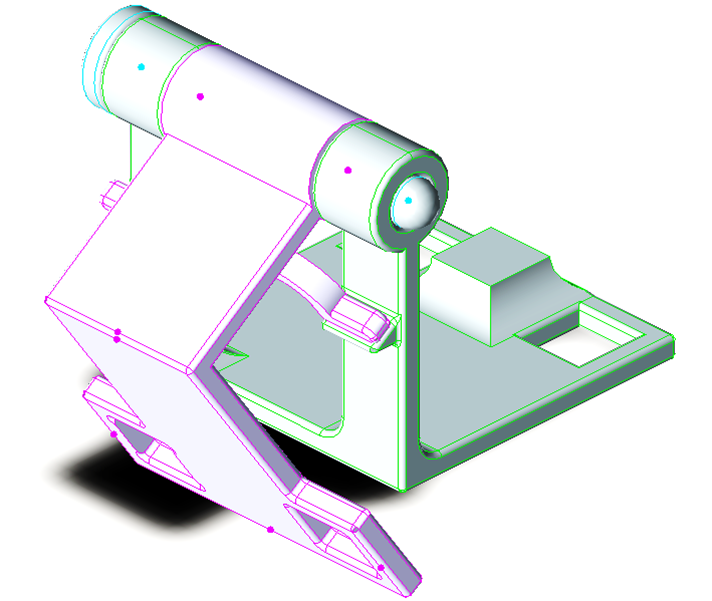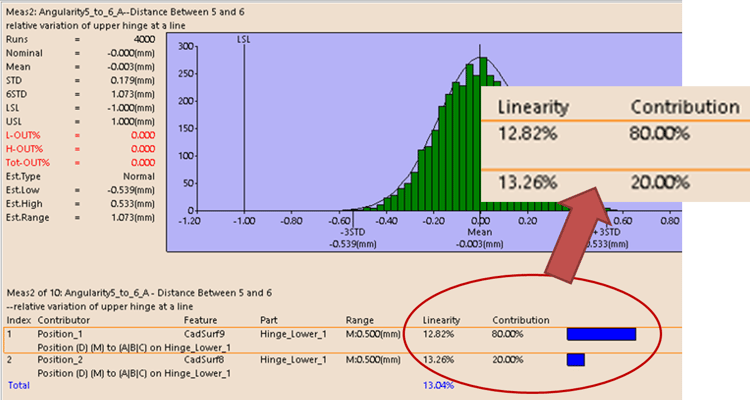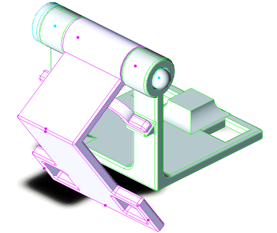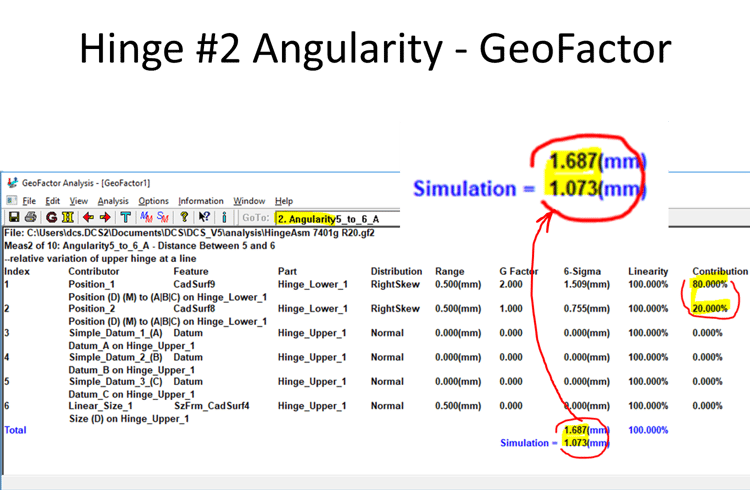
So what is it and what are some instances where you would want to use this tool?
August 31st - Simulation Based Sensitivity Webinar
-- Improve sensitivity accuracy on complex models and get more detailed results - New analysis feature coming for 3DCS Advanced Analyzer and Optimizer (AAO) Add-on Module
Click Here to View the Webinar Recording
Simulation Based Sensitivity is a new advanced analysis tool coming out for 3DCS Advanced Analyzer and Optimizer Add-on (AAO) for all versions of 3DCS software. In the following explanations, remember that the current version of AAO contains GeoFactor calculations, and uses the same calculation methods as GeoFactor.
Simulation Based Sensitivity is the next stage in the advancement of 3DCS analysis. We can now see into 3DCS model behavior in ways not possible before. Besides the usual HLM lists, we now gain insight into multivariate interactions between inputs and their effects on output mean shift.
SBS provides a more in-depth analysis of your contributors. This is helpful in a number of instances:

This is important because when you are modeling during the design phase and still have the opportunity to change contributor values, this gives you a tool that lets you instantly see the effect of the tolerance change on the measurement mean and standard deviation results.
–E.g. Positional tolerances with Bonus
SBS is important as it is the only tool in the 3DCS line up that:
SBS handles non-linear relationships. It does this by accounting for interactions between tolerances, which once accounted for, allows the user to treat the relationship as linear.
Furthermore, by relating the tolerance range to the measure ranges, you get a better idea of how the tolerances contribute even when they are not linear.
 The chart below shows an example of a non-linear scenario, and the difference between the simulation results and standard GeoFactor, a good indicator to use Simulation Based Sensitivity.
The chart below shows an example of a non-linear scenario, and the difference between the simulation results and standard GeoFactor, a good indicator to use Simulation Based Sensitivity.

As a more advanced analysis, Simulation Based Sensitivity takes more time to run than standard analyses. As users ourselves, we understand the pain of having to wait long hours to see your results, or having managers and team members chomping at the bit for data that you can not get until the bar on the screen fills up.
To help out with this issue, DCS is getting two solutions ready for 7.4:
These two methods will greatly enhance the speed of your analysis. Need those results sooner? Now you can get them. Interested in how these two solutions speed up your analysis? Sign up for the webinar series and join us at the end of September to see for yourself!
See for yourself how SBS works, and can be applied to your tolerance models by Brenda Quinlan, one of the key developers of the tool.
August 31st - Simulation Based Sensitivity Webinar
-- Improve sensitivity accuracy on complex models and get more detailed results - New analysis feature coming for 3DCS Advanced Analyzer and Optimizer (AAO) Add-on Module
Click to View More Webinar Sessions from the Performance Enhancement Series
These Stories on 3DCS
No Comments Yet
Let us know what you think